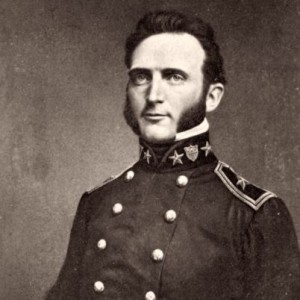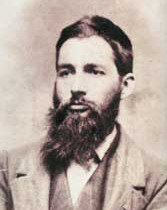Stonewall Jackson: A Character of Character

Stonewall Jackson, enigmatic general of the Confederacy.
I woke yesterday thinking about Stonewall Jackson. Odd, I know, and I have no explanation for it. I can’t remember the last time I thought of him. So, it was odd, but that word—odd—seems to fit neatly into any discussion of the legendary felled Confederate General.
Since I was thinking about him anyway, I decided I’d write down a few favorite Stonewall anecdotes and quotes.
I pulled out my copy of James I. Robertson’s outstanding biography of Jackson (which is one of my 25 favorite Civil War books) and at some point ended up on Goodreads reading some of the reviews of the book. One review began, “I was hesitant to read a book about Stonewall Jackson for the simple reason that I hate the guy.” Slavery seemed the focus of the reader’s hatred, but as an aside he liked the book, giving it a four-star rating. On the other hand, a five-star rater’s lone comment was, “One of my favorite role models as a young man.” The two comments seemed to capture two of the constant and conflicting comments that arise when discussion turns to Stonewall Jackson.
Stonewall, one of the members of the Confederate “godhead” (Lee, Jackson, Stuart–these names also, for what it’s worth and as no surprise, are the monikers of high schools in Northern Virginia near where I grew up), brings out strong emotions on both sides. Many claim the Confederacy lost its last hope of winning the war when friendly fire downed Jackson. Others turn from him in disgust, alleging that he supported slavery.
No matter how you feel about him, he is fascinating, and I side with those who admire him for his character. I find him particularly interesting because he was such a character. Definition 9b on freedictionary.com for the word “character” seems to capture the general: “A person, especially one who is peculiar or eccentric.” It was his success and his eccentricities that made him a near-mythical figure in the 1860s and that intrigue us today.
With Thomas Jonathan Stonewall Jackson, nothing seems as we expect: He supported a culture and government that supported slavery, accepted slavery as God’s will, personally benefited from slave labor; yet skirted Virginia law by teaching black children in a Sunday school. His faith in Christ and associated charity and kindness for humankind seemed, once he acquired it, to drive all he did; yet in his military efforts, he seemed to embody the militancy of the ancient and at times wrathful and merciless army of Israel.
Here are three favorite stories and quotes worth contemplating:
“I am more afraid of that than I am of Yankee bullets”
Stonewall Jackson was for the most part a teetotaler; not significant in itself, however, his reason and self-control are the true lesson.
One Surgeon McGuire pressed a drink medicinally on Jackson one cold night, and asked the general as he sipped it, “Isn’t the whiskey good?”
Stonewall responded, “Yes, very. I like it, and that’s the reason I don’t drink it.”
On another occasion, when asked why he abstained, Jackson answered, “Why, sir, because I like the taste of [liquors]. When I discovered this to be the case, I made up my mind at once to do without them altogether.” And finally, on one occasion, he assured a listener, “I am more afraid of [liquor] than I am of Yankee bullets.”
His self-denial and self-discipline make me pause to review my self-control.
“Don’t take counsel of your fears”

Stonewall Jackson advised cartographer Jedediah Hotchkiss to “Never take counsel of your fears.”
On an occasion when Stonewall Jackson and his cartographer Jedediah Hotchkiss were arriving toward dark at their camp on the mountains not far from Waynesboro, Virginia, they were greeted with countless campfires twinkling at them across a wide expanse of mountain. Worried they would never find their headquarters amid so many fires, Hotchkiss commented, “General, I fear we will not find our wagons tonight.”
Jackson responded, “Never take counsel of your fears.”
That seems like good counsel to us all.
“My Personal Comfort is not to be consulted”
Early in his Christian experience, Jackson attended church one Sunday when the minister admonished his congregants to attend weekday prayer services where each male member had a responsibility to lead the prayer.
Jackson approached the minister, explaining that he had little experience in public speaking and might not succeed at praying in such a meeting, but added, “If you, as my pastor, think it is my duty, call on me whenever you think proper. My personal comfort is not to be consulted in the matter.”
The minister, a Dr. White, did call on him, and Jackson’s fears proved justified and prophetic. Robertson reports in his Jackson biography, “words and sentences tumbled forth in utter confusion.” Weeks went by without another invitation to pray, at which point Jackson again approached Dr. White. “Are you trying to save me pain?” he asked. After receiving a response, he declared, “If it is my duty to lead in prayer, then I must persevere in it until I learn to do it aright, and I wish you to discard all consideration for my feelings.”
Dr. White called on Jackson again, resulting in a more positive experience for Jackson and the listeners. In time, Jackson prayers improved dramatically.
The drive Jackson had for duty and for self-improvement (even though the latter at times came slowly) and his refusal to allow his personal failures to deter him are great reminders to us all.
Hate him or love him, Stonewall Jackson gives us a lot to think about and reminds us it’s hard to judge others without understanding their intentions. (And rarely, if ever, do we see clearly into the hearts of others.)
Source: Robertson, James I.. Stonewall Jackson: the man, the soldier, the legend. New York: Macmillan Pub. USA , 1997. Print.
“I am more afraid of that than I am of Yankee bullets” anecdote and quotes are from pp. 299, 418, and from note 48 on p. 842
“Never take counsel of your fears” anecdote is on p. 457
“My personal comfort is not to be consulted” anecdote is on pp. 137-138
The post Stonewall Jackson: A Character of Character appeared first on Michael J. Roueche.



